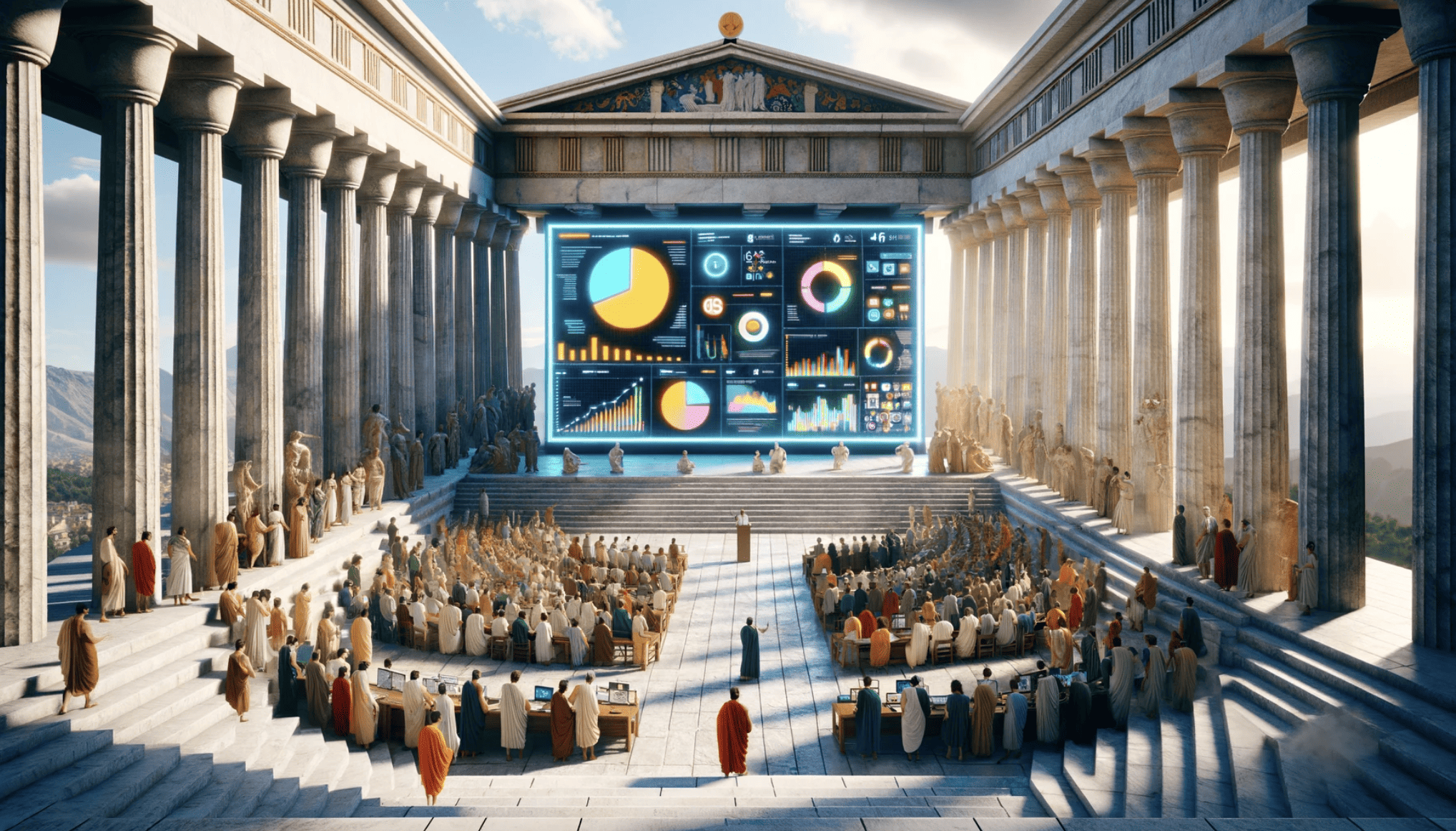
As quietly as possible, the last people slide into the large hall, knocking the wet snow off their coats, they take a sip of their coffee and they plod on their chairs. At the back of the ‘Grande Halle’ in Les Halles in Brussels, ‘the bellman’ swings his loud bell. This is how the last day of CPDP, an international congress in Brussels on Computers, Privacy, Data and Protection (CPDP) begins. The theme of this twelfth edition was data protection and democracy. “Data is so widely represented, we simply cannot avoid it”, says Paul de Hert, chairman of the CPDP platform and affiliated to the Free University of Brussels. “It is in the care, financial sector and elections. It’s everywhere. That’s why it’s so important to talk to experts from all these different sectors about what’s being done with data and the new technology this brings. But we also look at the whole picture. What impact does all this data and technology have? Here we emphasize that good data protection is a fundamental part of our democratic society.”
For three days, more than 1,500 participants from all over the world visited the Belgian capital for this congress. Divided over six halls, they listened to at least 400 speakers who debated with them on everything concerning data and privacy: from designing technology to designing legislation and all consequences for human rights and society. The audience is as broad as the subjects covered. Groups of students who, after the lectures, immediately grab a pint at the bar. Policymakers or entrepreneurs who are running through the corridors, busy calling. Scientists who want to spend hours on the subject after each panel discussion is finished. In between are human rights activists with blue dyed hairs or nose piercings. And where you hear complete paragraphs from codes, you know: lawyers. Who in this list of characterizations certainly should not be missing? The hoodies with laptops fully covered with stickers in the role of data analysts or tech-developers.

What do these different people do here and what do they learn? A small selection from the list:
Student:
Olga Glinicka is doing a master in international law in Leiden and replacing at the conference a fellow year student. “He’s studying law and digital technologies, they’re here with the entire master. I’m writing a thesis on prospects for a global framework for data protection. This conference gave me an opportunity to get away from the academic setting of the university and look at the practical side of the law. I also got in touch with data science professionals. Since I study law, I don’t usually meet people who work in the technological field. It was interesting to get their insights.”
What is the most important lesson of these three days? “There were so many aspects of the conference that I found valuable. I thought it was especially useful to interact not only with lawyers, but also policy-makers, entrepreneurs and data-scientists. This taught me to look at data protection from several angles.”
Teacher/activist/lawyer:
Who is not so easily listed in the boxes above is Marc Rotenberg. He teaches at the Georgetown Law School in Washington and is the founder of Electronic Privacy Information Center (EPIC), a civil rights movement that works for more digital rights in the US. Rotenberg immediately starts talking about EPIC’s biggest victory: the blocking of President Trump who wanted to request voting data from voters in fifty states. “Privacy is not a fundamental right in the US, as it is in Europe. It is a disputed area where a lot of changes are still needed. We have a lot of work to do, but victories like this contribute to this change”, he says proudly.
This year is already the tenth time he has come to Brussels for this congress. “It is good to go outside of Washington for a change. It’s fantastic how enthusiastic people are here. There is a very open atmosphere where people can openly debate with each other. They don’t always agree, but that’s part of a healthy democracy.” Rotenberg also indicates that it inspires him that all these different disciplines come together. It provides him with new insights and ideas. And also in terms of content, he says, everything is excellently taken care of.
Why is it so important to discuss these issues? “Technological changes are happening very fast, often so fast that legislation or privacy rights are lagging behind. Especially in these times with AI-systems. More and more is done automatically. I don’t think it’s a battle about winning or losing, but it’s about the future and what we want it to look like. And there is still some work ahead of us. Artificial intelligence is seizing more and more power, not only in private sectors but also in public institutions like the government. That sometimes worries me.”








